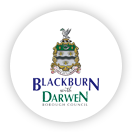Specific Learning Difficulties / Differences (SpLDs)
SpLD is a term used to cover a range of specific learning difficulties or differences.
The most well-known SpLD is
- Dyslexia.
Some people use SpLD to mean dyslexia, but dyslexia is only one of a larger group of difficulties.
There are 3 other types of specific learning difficulties you may hear about:
- Dyspraxia / DCD: a difficulty with organising and executing motor tasks or thoughts
- Dyscalculia: a difficulty with mathematical calculations
- ADD / ADHD: as an SpLD. A difficulty that affects concentration, attention, memory, impulsivity and other behaviours. It can occur with or without hyperactivity. (This is related to but differs from AD(H)D as a medical condition.)
Children and young people may have any of the above difficulties and also be on the autistic spectrum: Asperger Syndrome etc.
Key Points
- Specific Learning Difficulties (SpLDs) affect the way information is learned and processed by the brain.
- SpLDs often run in families.
- People across the intelligence / ability range can struggle with SpLDs.
How SpLDs affect learning and life
SpLDs can have significant impact on education and how we learn some life skills and academic skills.
People with one or more SpLD may struggle in any of the following areas:
- the speed at which they can process (deal with) information
- auditory short term/working memory
- visual/auditory perception
- phonological awareness
- handwriting
- organising movements and thoughts
Depending on which SpLD is being considered, additional difficulties may also be present.
However, students can often compensate for these problems by being taught to use other areas of strength or by using technology.
There is a large variation in the pattern of strengths and weaknesses in the SpLD profile and some individuals will have learnt to cope better than others, therefore it is difficult to apply generalisations.
More information
The Action Plan in the Downloads box sets out
- Advice about using a pupil's strengths
- SpLD characteristics that may affect learning
- Tasks these students may have difficulty with
- Strategies to incorporate into classroom teaching
This Action Plan has been adapted from documents in the Resources section of the Inclusion Development Programme (IDP) for Dyslexia, Speech, Language & Communication Needs 2008 (DfCFS)
Also in the Downloads box is a single sheet, at-a-glance, list of top tips.
In the Related Services box you will find links to the relevant Blackburn with Darwen SEND Support Serivce's pages.
There are also links to specialist organisations that can provide more information and assistance in the External Links box.


